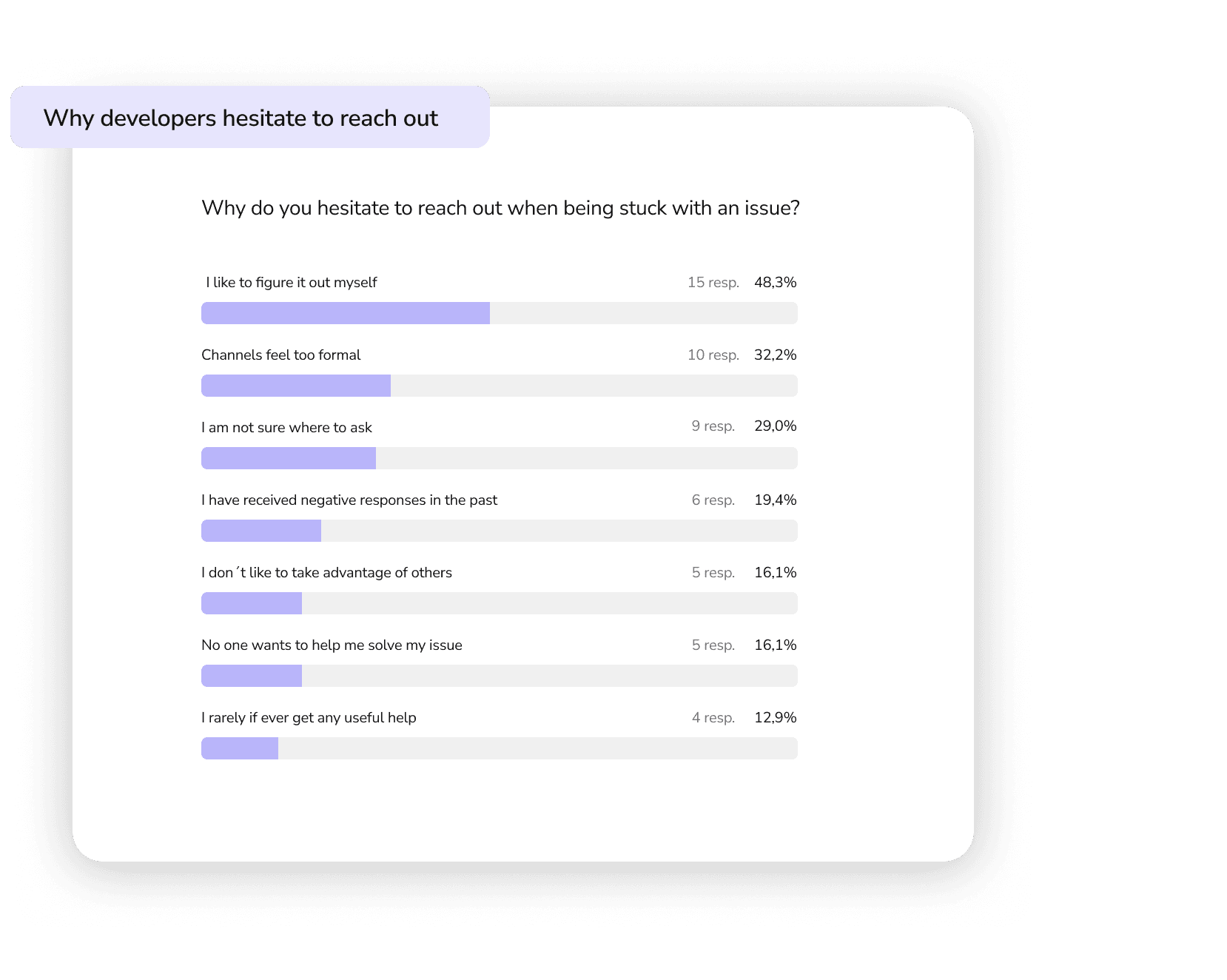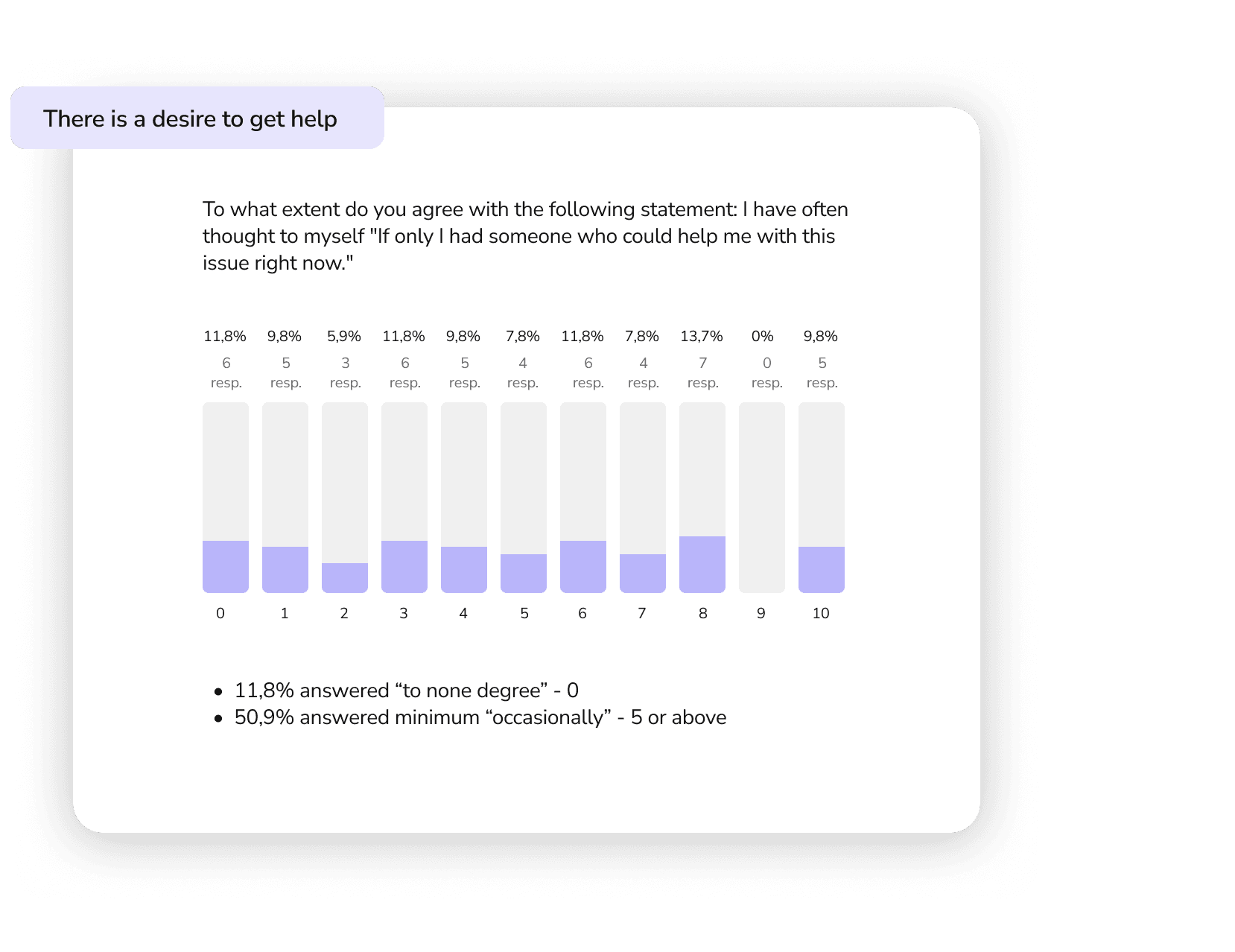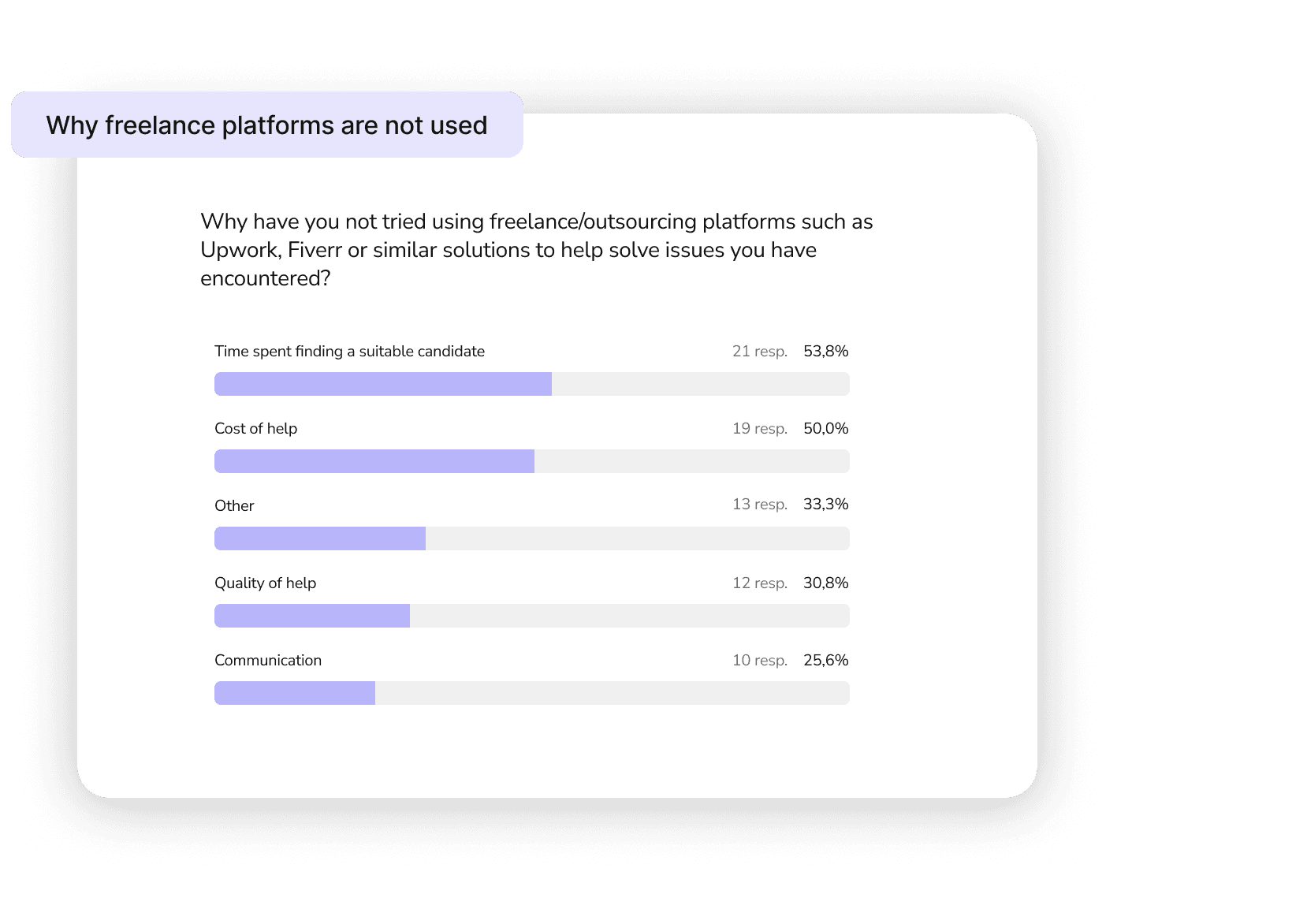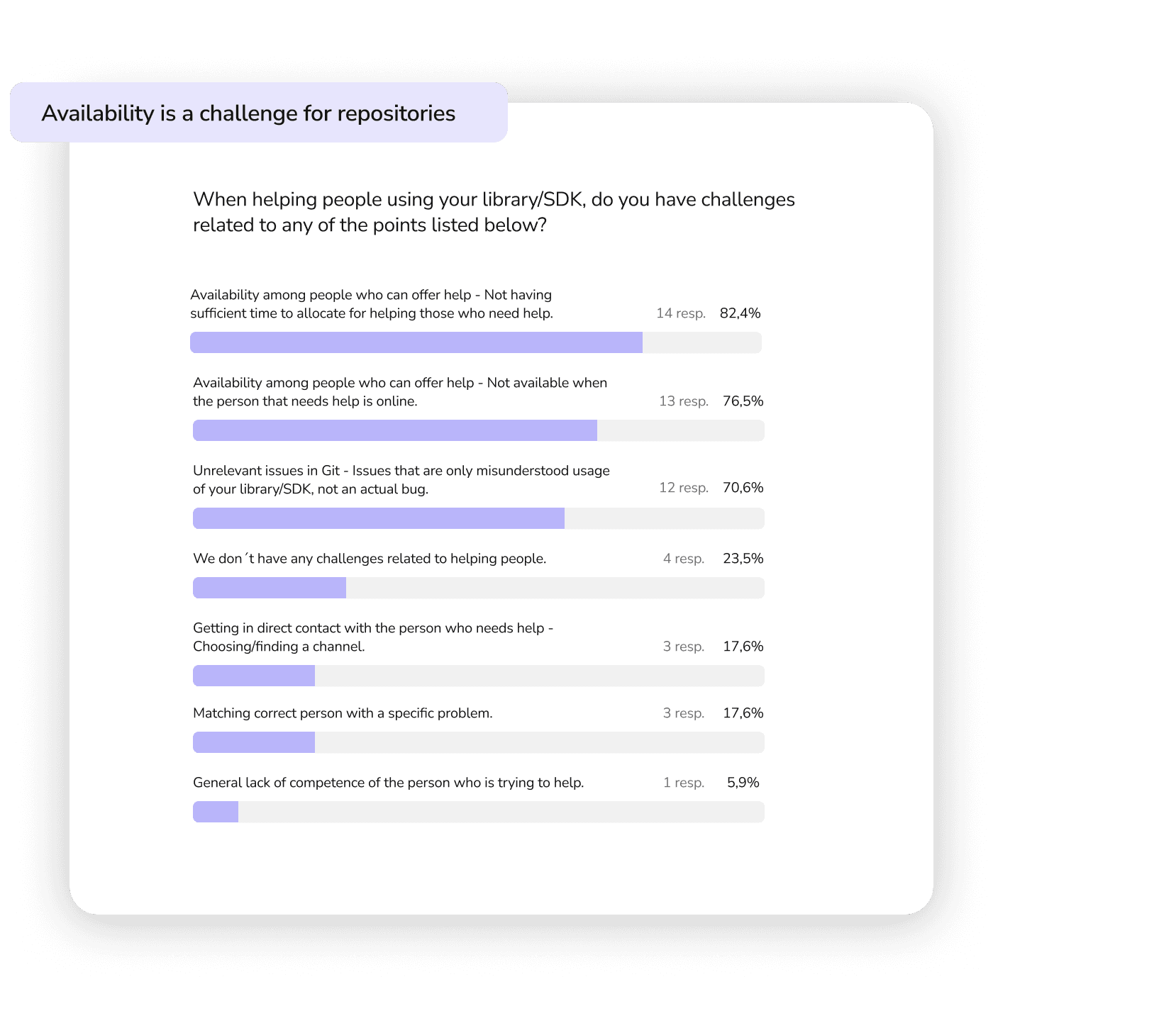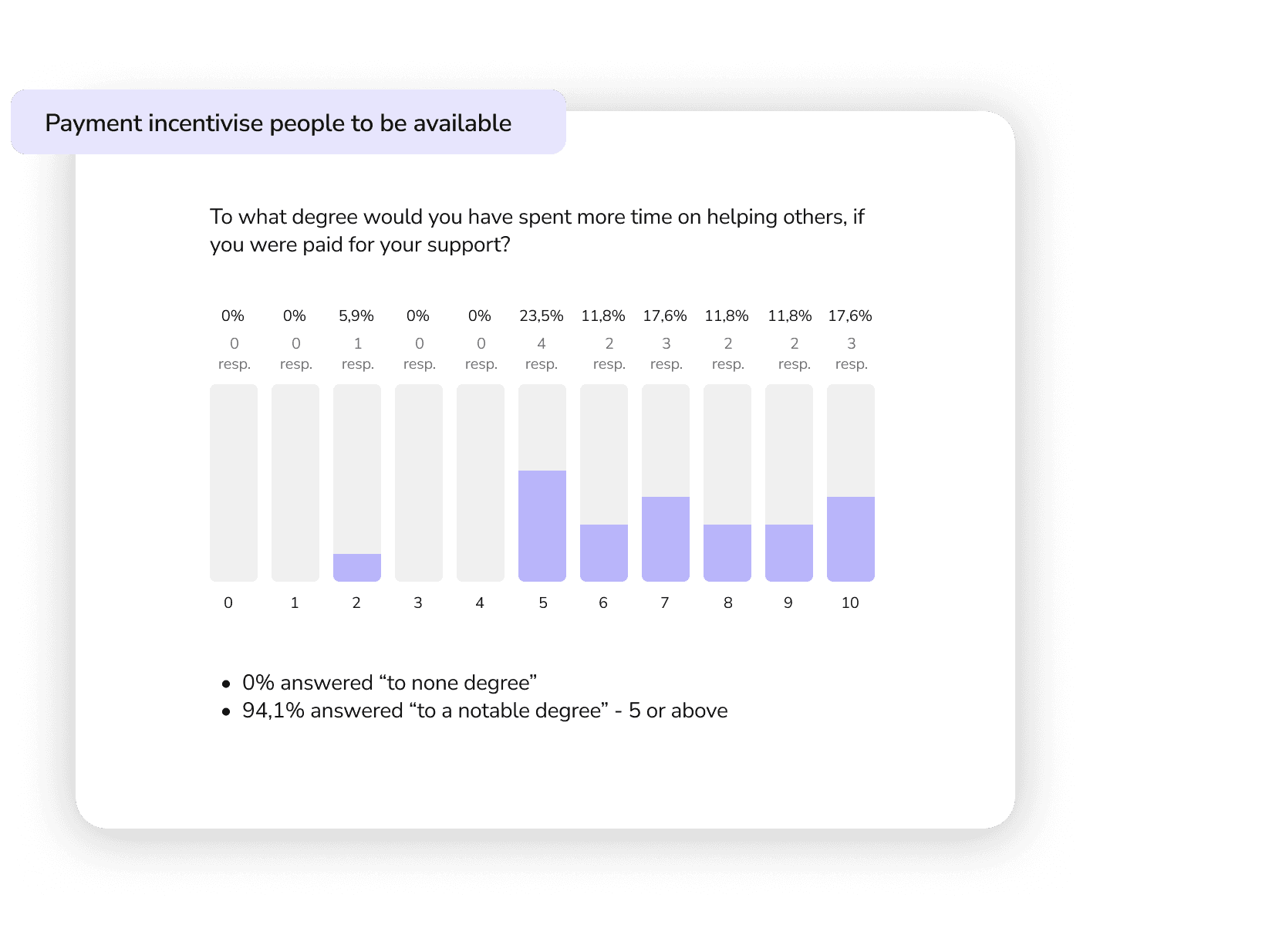Public issue channels are great sources of knowledge and convenient when seeking answers to issues that do occur. However, 59% say they are hesitant about posting issues in public issue channels, listing various reasons for that being the case. Almost half says they like figuring out problems themselves, which is great, but not necessarily for a company trying to keep a high pace of releases. If developers knew they easily could get help, that may have made them “braver” in their coding choices, and in applying frameworks they initially were hesistant to apply.
Despite being problem solvers, more than half do minimum occasionally think to themselves, “If only I had someone who could help me with this issue right now”.
There are several large communities of competent developers such as Upwork or Fiverr. We have used these platforms a lot ourselves, and know how much time you have to put in order to find a suitable candidate for a task. Shortlisting, screening, interviews and tests. A process that almost always takes at least a week or two to complete, and hence is very unsuitable for quick issues or small tasks. And despite investing time and effort, one often comes out with someone who wasn´t ideal for the task atfer all.
Discord is great for getting help, but many take for granted that developers will lend them their time without any compensation. This is of course a beautiful feature of the open source community spirit, but most of the people in need of help are asking on behalf of commercial projects, where the answer will benefit their employer or their own startup. It is just fair that those who provide the support in these cases get some sort of compensation beyond politeness and gratitude. It is hard to make a living on “high-fives” and “happy-face emojis”.
Availability among team members and other in the community are listed as the top two challenges, along with unrelevant issues. Not having sufficient time to allocate for helping, and not being available when the person that needs help is online. Of course, to which extent these challenges are present, surely depends on several factors, such as the size of the repository, the size of the core team, funding, available documentation, number of issues reported, and so on. However 82,4% (14/17) of the core members we spoke to, partly or fully managing, a couple of hundreds repositories, experienced this as a challenge.
The good news however, which should not be shocking, is that almost every one we spoke to, would have allocated more time towards support and help, if there were some kind of payment involved.
We are not claiming these numbers are universal for all development and repositories. These are our findings from surveying 51 developers working for more than 40 different companies internationally. As well as 17 repository owners, managing approximately 200 repositories in total.
